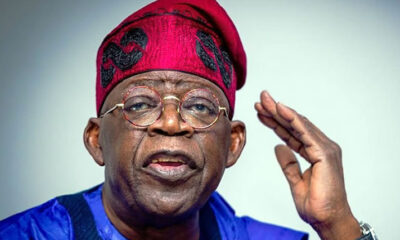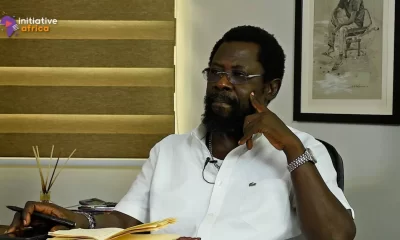Entertainment
Former Minneapolis police officer, Derek Chauvin appeals his conviction for murdering George Floyd
Former Minneapolis police officer Derek Chauvin has filed an appeal against his conviction for murdering George Floyd, arguing that he was deprived of a fair trial by the decision not to move proceedings to another city.
Chauvin was convicted in April 2021 of killing Floyd in May 2020. The former Minneapolis police officer knelt on Floyd’s neck during arrest, despite Floyd’s pleas that he could not breathe.
The officer was sentenced to 22 and a half years in prison in June 2021, and has been behind bars in Arizona since then.
On Wednesday May 17, Chauvin filed a case before Minnesota Supreme Court claiming that he was not given a fair trial.
The petition came a month after he lost his appeal before the Minnesota Court of Appeals.
His attorney, William Mohrman, argued that the conviction was unfair for multiple reasons, including the massive pretrial publicity and the intense feeling of sympathy towards Floyd in the city of Minneapolis.
But the three-judge panel last month sided with prosecutors who said Chauvin received a fair trial and just sentence.
His latest appeal reprises several of the same arguments.
‘We’re very hopeful that the Minnesota Supreme Court will accept review of the case,’ Mohrman said.
The Minnesota Supreme Court could agree to hear Chauvin’s appeal, in which case it would ask each side for detailed briefs and later set a date for oral arguments. Or it could decline to take the case, and let the Court of Appeals ruling stand.
Morhman wrote in the petition that the case presents the state Supreme Court with important questions on ‘developing and clarifying due process requirements to transfer venue when there is unprecedented pervasive pretrial publicity coupled with community violence.’
He also wrote that it raises issues about rules regarding juror misconduct.
One juror participated in a civil rights event commemorating the Rev. Martin Luther King Jr.’s March on Washington, D.C., a few months after Floyd’s death.
Only after the trial did the juror reveal that he had been there.
The Court of Appeals declined to send the case back to the trial judge for a hearing on whether the juror’s nondisclosure constituted misconduct.
Chauvin pleaded guilty to a separate federal civil rights charge and was sentenced to 21 years in federal prison, which he is now serving in Arizona concurrent with his state sentence.


 Top Stories13 hours ago
Top Stories13 hours agoBreaking: Ibadan Stampede: Court Orders Remand Of Ooni’s Ex-Wife, School Principal

 Top Stories19 hours ago
Top Stories19 hours agoI’m not prepared to downsize my cabinet — Tinubu

 Sports15 hours ago
Sports15 hours agoGOAT: Who said Messi is better than me – Cristiano Ronaldo

 Entertainment15 hours ago
Entertainment15 hours agoJay-Z has no ‘plans to show loyalty to longtime friend Diddy’ as he battles r@pe allegation

 Entertainment15 hours ago
Entertainment15 hours agoRegina Daniels reveals the best way to predict one’s future as she shares more photos from her vacation

 Entertainment15 hours ago
Entertainment15 hours agoNkechi Blessing gets engaged to younger lover, Xxssive [VIDEO]

 Entertainment15 hours ago
Entertainment15 hours agoSelena Gomez flashes gorgeous $1M engagement ring

 News13 hours ago
News13 hours agoDele Farotimi released from Ekiti correctional centre






